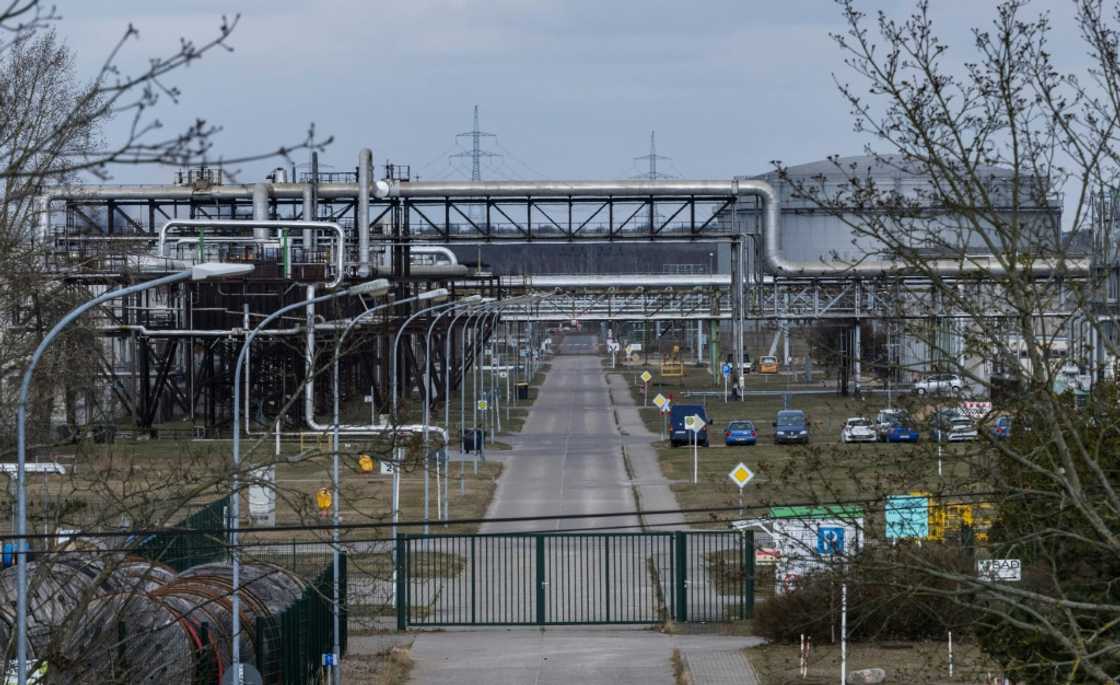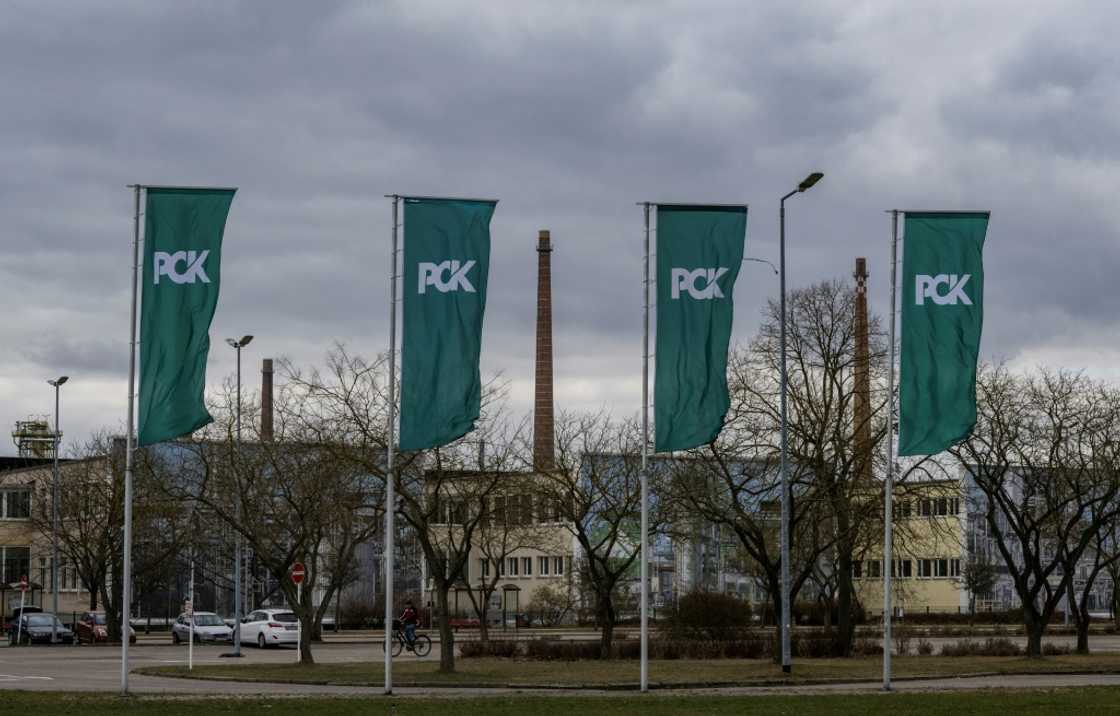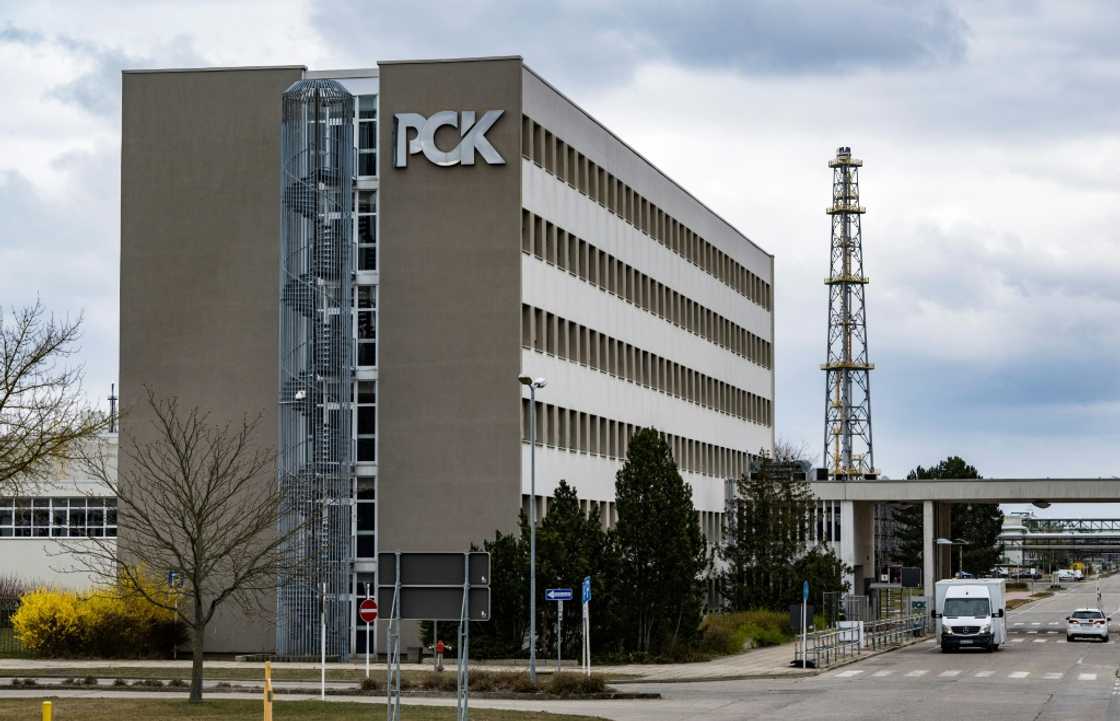German refinery's plight prompts calls for return of Russian oil

Source: AFP
CHECK OUT: Education is Your Right! Don’t Let Social Norms Hold You Back. Learn Online with LEGIT. Enroll Now!
No Russian oil has been delivered via the Druzhba pipeline to the PCK refinery in Germany in more than two years because of sanctions levied against Moscow following its full-scale invasion of Ukraine.
But with the plant in the town of Schwedt on the border with Poland struggling to adapt to processing other raw materials, calls are growing louder for a return to the good old days.
"Many people, especially in Schwedt, see it as conceivable and desirable that oil could once again flow via the pipeline," the leader of the city council, Hans-Joachim Hoeppner, told AFP.
Having to accommodate different types of oil at the plant, which employs some 1,200 people, has made production less "effective", said Hoeppner from the centre-right CDU.
The idea of reopening the door to the European market for Russia has up until now been firmly dismissed by officials in Berlin.
But the thaw in US relations with the Kremlin instigated by President Donald Trump since his return to office has raised hopes of a possible agreement on a ceasefire in the Ukraine war.
"If changes are happening in the relationship with Russia... then I think it is very possible that there is Russian oil," said Hoeppner.
German sanctions on Russian oil brought a halt to deliveries of crude via the Druzhba pipeline -- Russian for "friendship" -- at the start of 2023.
'In the red'
Since then, the refinery in Schwedt has been drawing substitute supplies via a pipeline to Rostock, as well as small volumes through the Polish port of Gdansk and from Kazakhstan.
The changes have left the plant operating at around 80 percent capacity and firmly "in the red", said Danny Ruthenburg, head of the works council.
A "solution" is urgently needed to keep the refinery running and save jobs locally, said Ruthenburg -- whether that means more oil from Rostock or via the Druzhba pipeline after an end to the war in Ukraine.

Source: AFP
Dietmar Woidke, the Social Democrat leader of Brandenburg state, last month signalled that he may be open to the return of Russian oil.
"I would be pleased if we could return to normal economic relations with Russia," said Woidke, describing the refinery as a "hugely important" player in the region's economy.
Others have been more explicit in their demands.
"Lift the sanctions, because they only hurt us more than the Russians," said Peggy Lindemann, a member of the works council and city councillor for the far-right Alternative for Germany.
When Russian oil was withdrawn from Schwedt, the government promised to prepare a switch to the production of hydrogen -- but the plans have stalled, leaving the plant in limbo.
Trusteeship
The situation is also complicated by the fact that the PCK refinery is majority-owned by Rosneft Deutschland, a local subsidiary of the Russian oil giant, and managed through a trusteeship by the German government.
Berlin's control over the Russian asset, justified as a measure to protect critical infrastructure, was prolonged in March with a renewed promise that Rosneft would sell its interest.
But finding a buyer will likely be challenging as long as the business still has to contend with oil sanctions.
Talks have recently been reported on the possible revival of another seemingly stranded Russian fossil fuel project, the Nord Stream gas pipeline network.

Source: AFP
Russian Foreign Minister Sergei Lavrov said in March that discussions had taken place between US and Russian officials on reviving the pipelines -- even if it seems highly unlikely that Berlin would give the green light to such a project.
The Schwedt plant has also been mentioned in US-Russia talks, according to a report by the German investigative website Correctiv.
"In principle it would be a solution... it would create security," said Hoeppner. "I don't have anything against it."
PAY ATTENTION: Сheck out news that is picked exactly for YOU ➡️ find the “Recommended for you” block on the home page and enjoy!
Source: AFP





